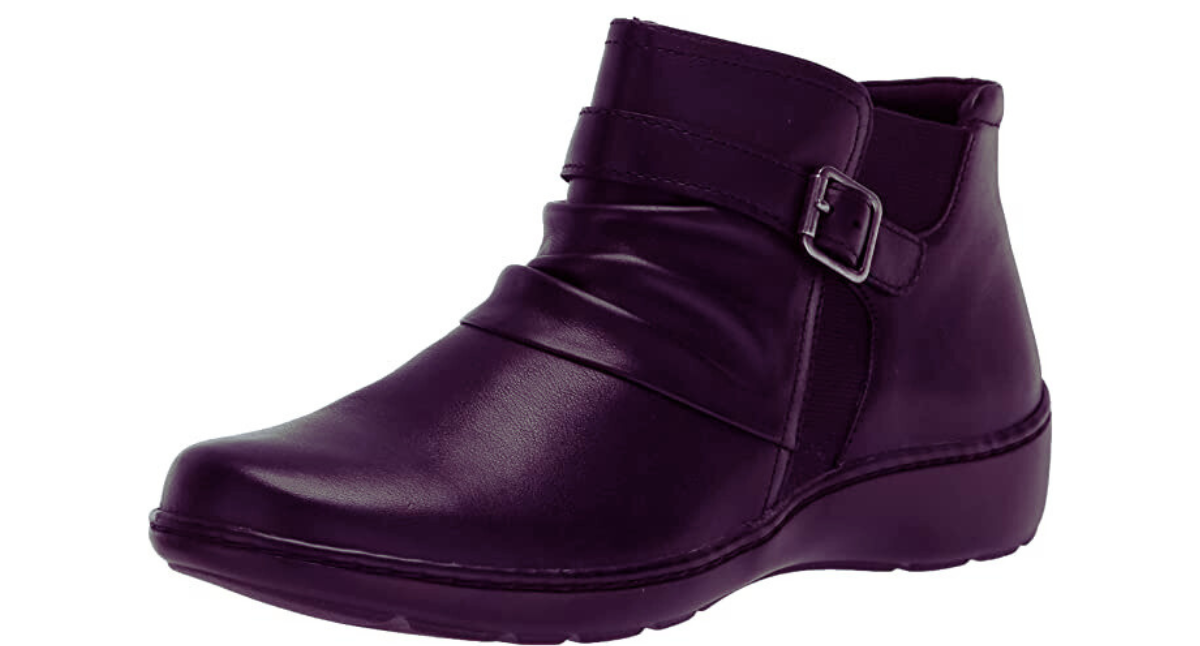When aiming for business casual look it is important to avoid certain types of shoes that may be too casual or inappropriate for a professional setting. There are some types of shoes you should avoid in business casual environment:

• Flip-flops or Beach Sandals
• Athletic Shoes
• Thong Sandals
• Worn-out or Dirty Shoes
• Extreme High Heels or Platform Shoes
• Loud or Attention-Grabbing Shoes
• Heavy-duty Boots
• Ballet Flats
• Clogs
• Open-toe Shoes
Athletic shoes and sneakers, dress heels or flats, clogs, loafers, leather boat shoes, and tights or stockings, depending on the season, are all appropriate for business casual office wear. Business casual dress codes may seem a little loose, but it’s crucial to always look put together and professional.
Does business casual mean open-toed shoes?
Open-toed shoes may or maybe not suitable in a business casual circumstance, depending on the particular sector and company. Open-toed shoes are often appropriate in many business casual settings, particularly during the warmer months.
But it’s crucial to take into account the following elements:
• Company Policy
• Industry Norms
• Season and Weather
• Footwear Style
• Personal Comfort
No, In most business circumstances and corporate contexts sandals, open-toed (and open-heel) shoes are not considered professional. Open toed shoes worn with a business suit really may look amazing together, but they are still not deemed suitable in a professional business atmosphere.
What is considered business casual shoes?
The overall business casual dress code should be complemented with business casual shoes that strike a mix between professionalism and ease. The following shoe categories are often seen to be suitable for business casual settings:
• Loafers
• Oxford or Derby Shoes
• Brogues or Wingtips
• Chukka Boots
• Monk Straps
• Derby Shoes
• Chelsea Boots
• Dress Boots
• Moccasins
• Low-Heeled or Wedge Shoes
There are many ways to outfit sneakers for the office, and they are appropriate for business casual. They don’t give up even the slightest bit of elegance for comfort.
What is the difference between Business casual and casual?
Business Casual |
Casual |
| Collared shirts, dress shirts, blouses, knit shirts | Polo shirts, casual button-down shirts, T-shirts |
| Khakis, dress pants, chinos, tailored jeans | Jeans, khakis, chinos, casual pants |
| Loafers, Oxfords, dress shoes, ankle boots, conservative flats | Sneakers, casual loafers, sandals (in appropriate settings). |
| Tasteful accessories, ties (for men), scarves (for women). | Casual belts, hats, and accessories |
| Blazer, cardigan, trench coat | Casual jackets, hoodies, denim jackets |
In general, business casual is more formal than a casual dress code. Employee attire may vary from what they might wear out on the town or while relaxing at home, but it is often more casual and laid back. For instance, a casual dress code can permit jeans for work every day but discourage sweatpants.
Do you have to wear closed toed shoes for business casual?
If you’re anything like us, you most likely have an entire shoe rack filled with exquisite pumps and sandals that you can’t wait to wear to work. Again, though, not every situation is appropriate for a business casual setting. For example, you should usually wear shoes with closed toes.
Can I wear leather sneakers for business casual?
Yes, you can wear leather sneakers for a business casual dress code, as long as they follow the rules specific to your workplace. In many modern and more relaxed business environments, leather sneakers have become acceptable as part of a business casual outfit. However, it is essential to ensure that the sneakers are clean, well-maintained and in good condition.
When pairing leather sneakers for a business casual look, consider the overall ensemble. Pairing them with well-worn chinos or dress pants and a collared shirt or casual polo can strike a balance between casual and professional. Additionally, choose sneakers in neutral colors like white, black, or brown, as they tend to be more versatile and go well with a variety of outfits.
Unlike the typical gym sneaker, the ideal business casual sneaker should be made from materials typical of dress shoes, such as suede or leather. This improvement, regardless of the current sneaker style, is a major factor in making the sneaker suitable for the office.
What kind of shoes are business attire?
Gender-neutral professional dress
You might go for loafers, sandals, or stylish sneakers for your footwear. You may go for slacks, pants, or polished chinos for more formal attire. Top choices include cardigan-style shirts, button-down shirts, and sweaters. Shoes might be elegant lace-ups, loafers, or oxfords.
